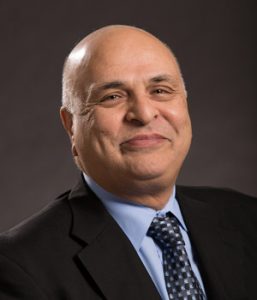
Habib Tabatabai, professor, civil & environmental engineering and director of the UWM’s Structural Engineering Lab was awarded $150K from the Wisconsin Highway Research Program for his study Improving Bridge Concrete Overlay Performance.
In this study, he will evaluate, identify, and mitigate any causes of cracking in the concrete overlays used to protect the bridge decks on Wisconsin roads and highways. The overlays have been subject to early cracking in recent years.
“Concrete overlays are commonly used when bridge decks show distress in the form of cracking or delamination,” Tabatabai says. The overlays restore the deck’s riding surface and provide a protective physical barrier to Wisconsin’s harsh environmental conditions and deicing salts, he says.
“Bridges are very costly,” Tabatabai says. Concrete overlays are designed to delay the time when a more costly bridge deck replacement would be required.
About Tabatabai’s research
Tabatabai is an expert on bridge engineering and assessment issues—most notably the long-term durability and reliability of bridge structures.
He has worked with the Wisconsin Department of Transportation to develop guidelines for engineers approaching the repair of bridges that were accidentally damaged by over-height trucks; conducting qualification testing on stay cables on every cable-stayed bridge built during the 1990s in the United States; and developing procedures for the design of jointless bridges, which, while more complicated to design than conventional bridges, hold the promise of reduced maintenance and longer service life.